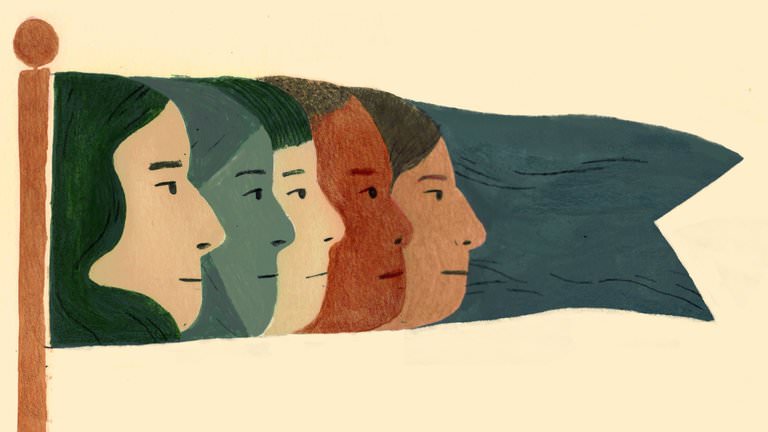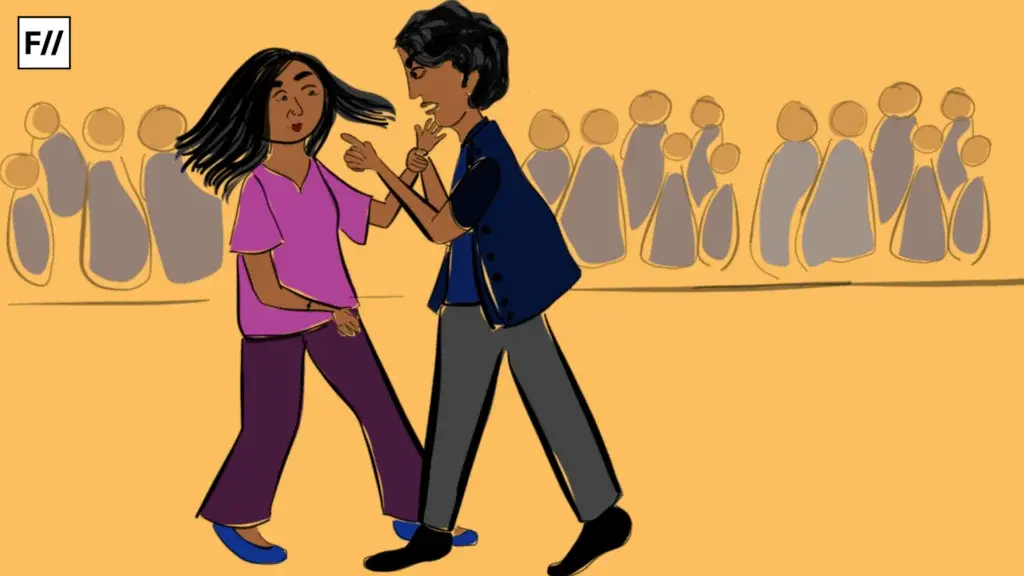Five years of participation in student politics and identifying as a dyke (queer identity) could lead one to spend an immense amount of time on social media. Platforms where one interacts with haters, loved ones and allies simultaneously.
If I were to locate incidents of abuse and harassment that I have faced online, the funny thing is, most of it has occurred by people who have their progressive and liberal credentials in check. It’s strange to see how people turn on those they consider their own.
Moments where social media was a giant pain
There was a queer group I used to be a part of, where a few members of the group (two of them were admins), who would regularly sexually harass me. I called them out online on their Facebook group. They, along with their support circles, crucified me.
It was an insult fest complete with MRA indignation and denial. Then the classic trope that has become as old as the hills: that they are gay men and it is not possible for them to sexually harass women. That I am a fake lesbian. Then said I am a fake bisexual. Followed by accusations of playing the ‘woman’ victim card.
Then there was this incident with Sarahah – where one person who has been closely observing my life since 2015: who anonymously showered me with misogynist abuse about my participation in student politics, my sexual orientation and got particularly vicious when talking about my body.
In that abusive rant, there was an angry defence of gay men, which makes me question if my abuser was a cis-het binary man. It was obvious that it was someone who knew me, with such in-depth knowledge of my life. I fear it could have been someone I considered to be a friend.
In the not-so-far future of flying cars and casual planet surfing, my Facebook other folder should go down in history archives, categorised under ‘This is what online queerphobia and fat-shaming look like’. This is not to claim that I am the only queer person on the planet who gets abused online. Where this folder and the kinds of questions/unrequited opinions I get are concerned, it is NOT my job to tell friends and random strangers alike, that it is okay to be gay or not. We have established that its okay. Let’s move on from that now.
Also Read: The Perils Of Being A Woman In The Online Realm | #DigitalHifazat
Some people with their leftist, progressive liberal credentials in check are even worse. What I get told in Facebook comments from this comrades ka bandwagon is that ‘Elle Gee Bee Tee’ is a capitalist construct which only the privileged, elite and sexually bored people can afford. I am not generalising here, but I feel that there is a structural mode of thought which needs addressing.
I am getting very tired of this monologue of the ‘larger cause’. The day Fidel Castro died, that was the day this group took to social media to shut down accounts of the horrendous atrocities inflicted by Castro on the queer community in Cuba. That queer lives are petty issues compared to the ‘larger struggle against American imperialism’. This is backed up with jargon, interjected with accusations of ‘identity politics’, my own apparent weakness in the “art of critical debates” and quotes from Marx and Engels to justify their own queerphobia.
Conceiving a feminist internet
However, the glass can be considered half full as well. Its social media that taught me to get over my fear of confrontation, in instances of being harassed or abused. I don’t know where I would be without Facebook. Calling haters out on Facebook brought with it an overwhelming amount of support from genuine allies, friends and well-wishers. Facebook brought me to people from the queer community with whom I formed bonds of solidarity and friendship with, as well as queer events and queer groups which serve as safe spaces for persons assigned female at birth.
My idea of a feminist internet is one where bigotry is replaced with dialogues, differences are acknowledged, identities are not appropriated, healthy debate, support mechanisms and most importantly, one where our experiences are not defined for us. Yes, it must be acknowledged that accessing the internet comes from a place of privilege. I have the privilege of belonging to middle-class and savarna social units. I have the privilege of living in a “free state” and I do not have to fear state-imposed internet blockades
What is also of primary importance to me regarding a feminist internet is that access to the World Wide Web should be completely free of censorship and state-surveillance. We live in very troubling times where lynching of Dalits and Muslims has become the new normal; media blackouts about Kashmir; the recommendations to the Transgender Persons Bill 2016 have been rejected; at a UNHRC summit, India voted against abolishing the death penalty for the queer community.
My idea of a feminist internet, also, is a network that has no looming presence of state machinery in it. How on earth are we to assert ourselves when fearing state-sanctioned repercussions? For example, Facebook and Instagram community standards are not to be trusted and have vested state interests, if they remove posts about menstruation and female bodies.
The good thing for those who are in a position to access the internet is that no one can stop you from posting and asserting yourself on social media. Repercussions to said assertion aside, assertion on the internet cannot be the sole domain of the cis-het binary, savarna, able-bodied, upper-middle-class man.
Also Read: The Government’s Callous Rejection Of Recommendations For The Transgender Persons Bill
Featured Image Credit: The New York Times
About the author(s)
Friends with half the dogs in the city, can make a career out of procrastinating and when people engage in body shaming, am quick to remind them that I eat patriarchy for breakfast, lunch and dinner.




